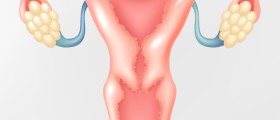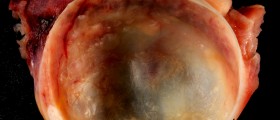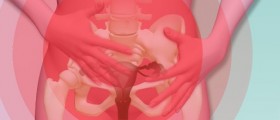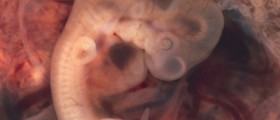
Info aboutOvarian Cysts
Ovarian cysts arefairly common among women but because of the frequent lack of symptoms manypatients remain undiagnosed or become misdiagnosed. Even in cases when women suffer from certain signs and symptoms, it is hard to tell is it becauseof the ovarian cysts or some other health related problem. Inflammatory pelvicdisease, endometriosis, ectopic pregnancy or even ovarian cancer are mistakesdoctors may commit when diagnosing ovarian cysts. Routine abdominal and ultrasoundexams often discover these cysts while patient was actually complaining aboutsomething completely different.
Ovarian CystSymptoms
Pain in theabdominal area of the body or in the lower pelvic region mayindicate that the patient is suffering from ovarian cysts. These patients describe the pain as sudden and unexpected, appearing without any pattern orregularity. The pain itself is also not connected to some specific part of themenstrual cycle. Sometimes, women may experience fullness in the abdomen orlower pelvic region.
Lower back painduring the menstruation may also be associated with ovarian cysts, as well asthe painful sensations during some physical activity or sexual intercourse.Nausea, vomiting, frequent and problematic urination are also connected withovarian cysts in some cases. Blood spots in vagina and weight gain may alsohave the same denominator – ovarian cysts.
What you need toknow is that these symptoms may or may not be caused by ovarian cysts, sincethey are not specific for this medical condition.
PotentialComplications of Ovarian Cysts
Symptoms such asdizziness, light-hotheadedness, fever and fatigue may lead to conclusion thatproblem with ovarian cyst is not so simple. All these symptoms and/or some additionalbreathing problems like shortness of breath or rapid breathing can indicatethat this is much more severe problem than it usually is. In this case, itmight be the best bet to visit the doctor and diagnose the problem withultrasound or laparoscopy exam.
Large ovarian cysts may pressurize the abdomen and cause various symptoms. When the cystspressurizes the bladder, the patients usually have to urinate more frequently.Ovarian cysts after the menopause may be cancerous, so postmenopausal womenshould regularly get a pelvic exam.
You have tounderstand your symptoms and the seriousness of the condition or possibleconsequences. Never underestimate a fever, vomiting or some unexpected pain inthe pelvic or abdominal region, for they may be directing you to some seriousmedical problem.

















Your thoughts on this
Loading...